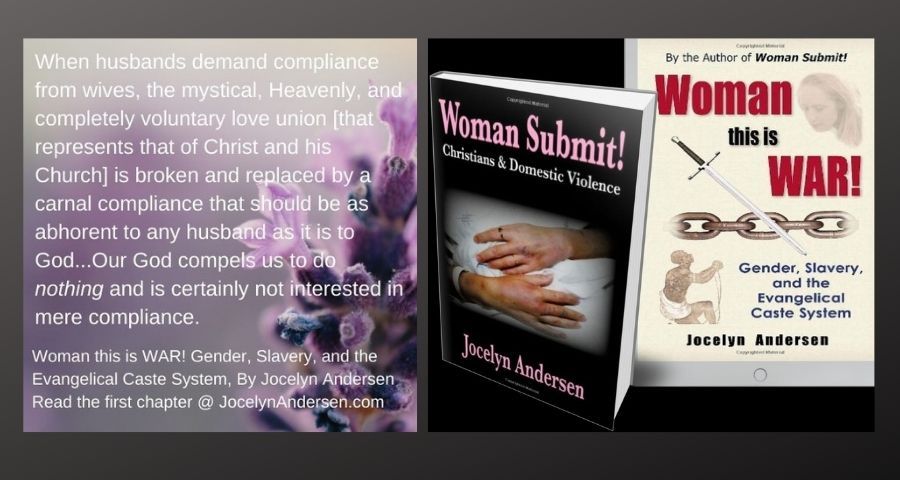A revised, second edition of, Woman this is War: Gender, Slavery and the Evangelical Caste System, is in the works. With that in mind, an autographed copy of the first edition is being offered for $15 {that includes shipping and tax}. There are only 20 copies currently available for this offer, and we are considering taking the first edition out of print as soon as the second edition is released. So, if you would like an autographed copy of the first edition, now might be the only chance to get one.
Use the contact form in sidebar to request your autographed copy, today



